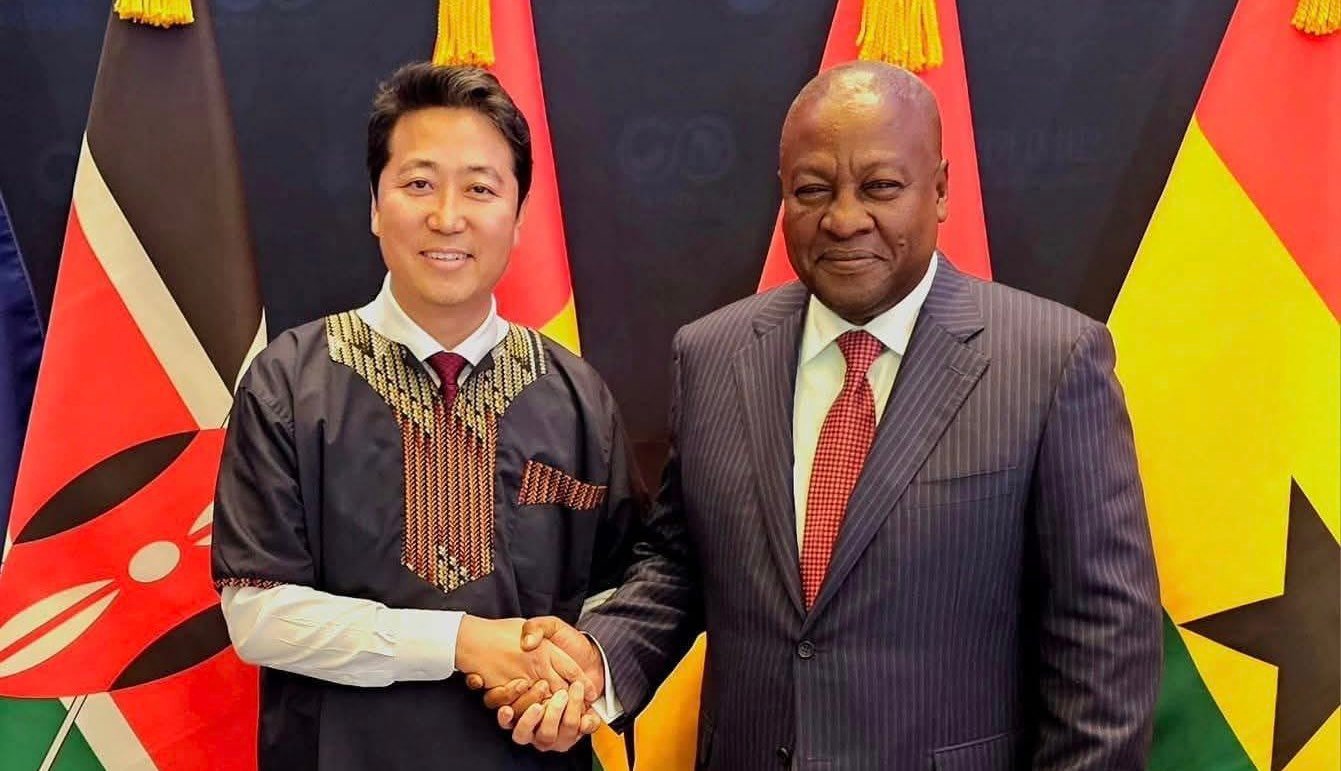By The Weekly Vision Foreign Affairs Desk
The appointment of Kojo Choi as Ghana’s Ambassador to South Korea by President John Dramani Mahama has sparked widespread interest both within Ghana and across Africa. Formalised through a presidential letter dated 21st July 2025, the decision was described in Accra as part of a broader diplomatic reshuffle.
To unlock the full article:
Choose one of the options below:
- Ksh 10 – This article only
- Ksh 300 – Monthly subscription
- Ksh 2340 – Yearly subscription (10% off)
What has especially captured public attention is Choi’s South Korean birth, a detail that makes his appointment appear unusual at first glance. Yet his story is more than a diplomatic footnote; it is a remarkable narrative of identity, belonging, and enduring service to Ghana.
Born Choi Seung-eub in Chuncheon, South Korea, in 1978, he moved to Ghana at the age of 14. His father, Reverend John Choi, a South Korean missionary, relocated the family in pursuit of his religious vocation. This move marked the beginning of young Choi’s lifelong association with Ghana.
He attended the SOS Hermann Gmeiner International College in Tema from 1994 to 1999, and later pursued a degree in Business Administration at the University of Ghana, graduating in 2002. By then, Ghana had become far more than just a host country; it had become home.
Over the past two decades, Kojo Choi has distinguished himself as an entrepreneur, philanthropist, and public servant. He is the founder of PaySwitch Company Limited, a leading Ghanaian fintech enterprise that provides secure payment processing services. The firm is accredited with ISO 27001 and PCI DSS certifications, linking global payment networks such as Visa and MasterCard with local mobile money platforms including MTN, Telecel, and AirtelTigo.
Beyond the tech space, Choi also founded Art Africa, a cultural initiative that seeks to promote Ghanaian art and heritage. In 2022, the project launched the Art Africa Gallery in Osu, Accra, aiming to position Ghana as a global hub for contemporary African art.
In the telecommunications sector, he established NanaTel Limited, an authorised MTN distributor focused on mobile money management and customer service in Ghana’s Eastern and Volta regions. Choi’s contributions to education and social development are equally notable. Alongside his wife Elisabeth, he co-founded the One Heart Africa Academy in East Legon, a Christian-based school that merges academic rigour with spiritual values.
Having resided in Ghana for over 30 years, Choi eventually naturalised as a Ghanaian citizen, adopting the Akan tribal name “Kojo” and relinquishing his Korean birth name. His assimilation into Ghanaian society has not been tokenistic; it has been profound, heartfelt, and enduring.
He has also served Ghana in a diplomatic capacity. During the 2018 Winter Olympics in PyeongChang, South Korea, Choi was appointed Deputy Head of Mission. While there, he facilitated a GHS 100,000 donation from PaySwitch to support Akwasi Frimpong, Ghana’s sole representative at the Games.
In a moving Facebook post dated 3rd June 2025, Choi reflected on his personal and national journey:
“Thirty-three years ago, I was just 14. Since then, I’ve witnessed every Ghanaian election under the 1992 Constitution. We shocked the world, not with chaos, but with peaceful, democratic transitions. I could have left for the USA or Korea, but I chose to stay. I naturalised as a Ghanaian, and I’ve never looked back. Ghana may not be my birthplace, but it is my true home.”
He concluded with a quote from Ghana’s founding President, Dr Kwame Nkrumah:
“I am not African because I was born in Africa but because Africa was born in me.” In this light, Kojo Choi’s appointment to Seoul is far from improbable. It is the culmination of a unique, inspiring journey of a man born in Asia who chose Africa as his home and who has contributed meaningfully to its growth.
His life story challenges conventional notions of nationality and allegiance, offering a modern testament to the evolving definitions of identity, citizenship, and patriotism. It is not one’s place of birth that necessarily determines one’s sense of national belonging, but rather one’s commitment, contribution, and love for a people.
[/full]




